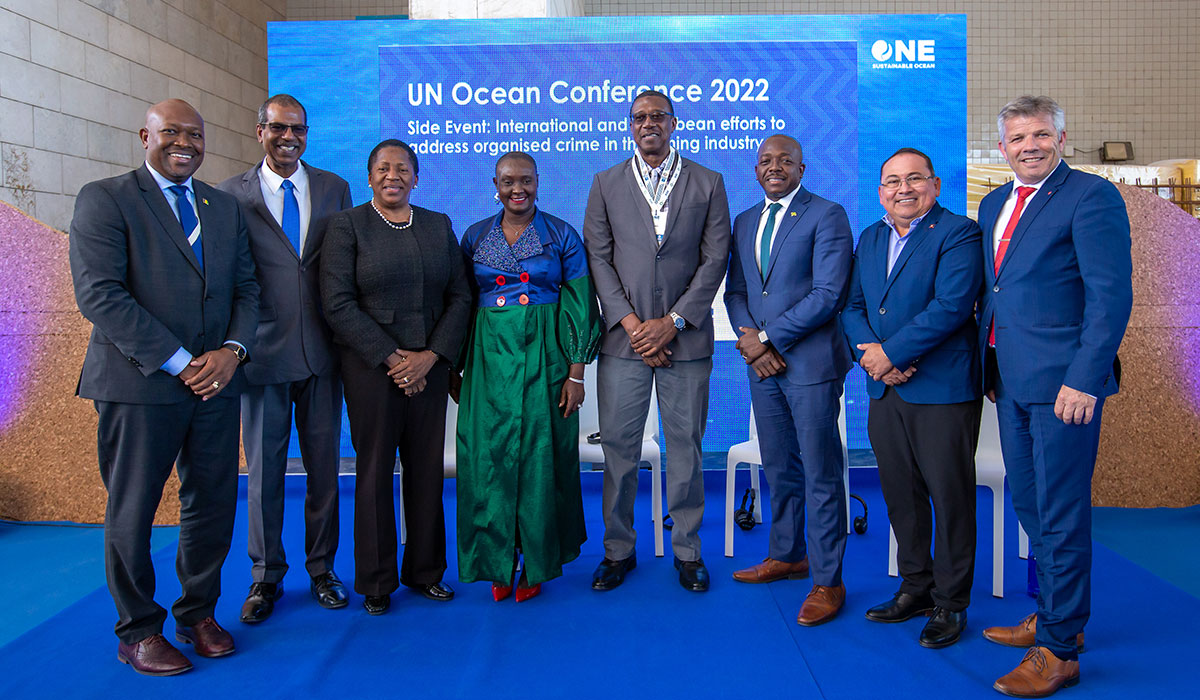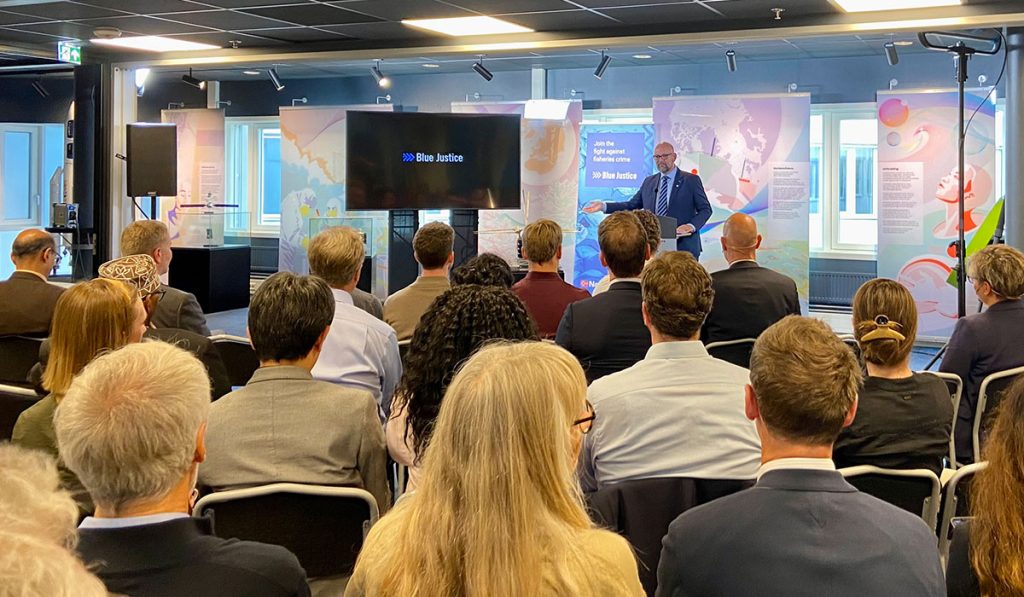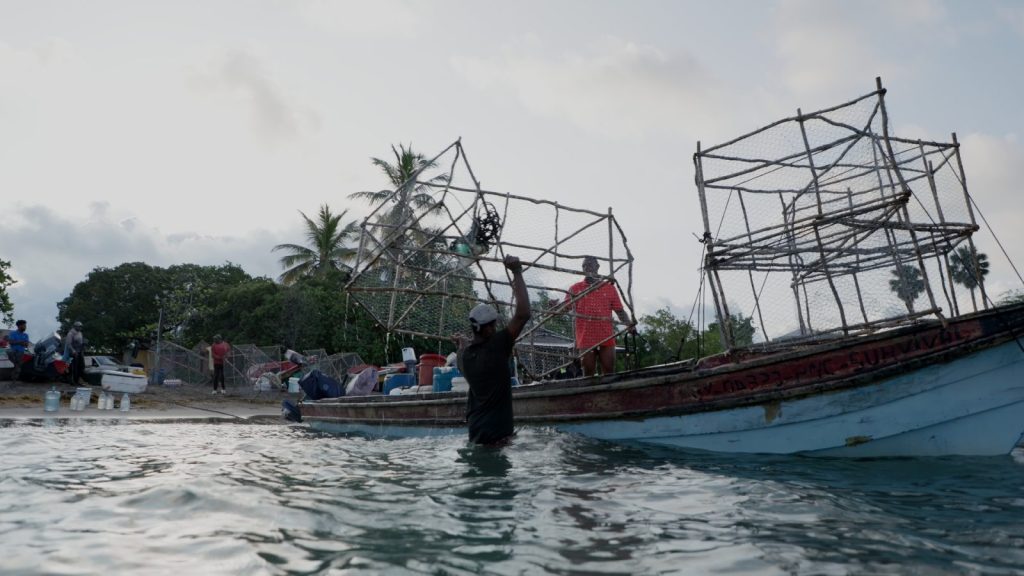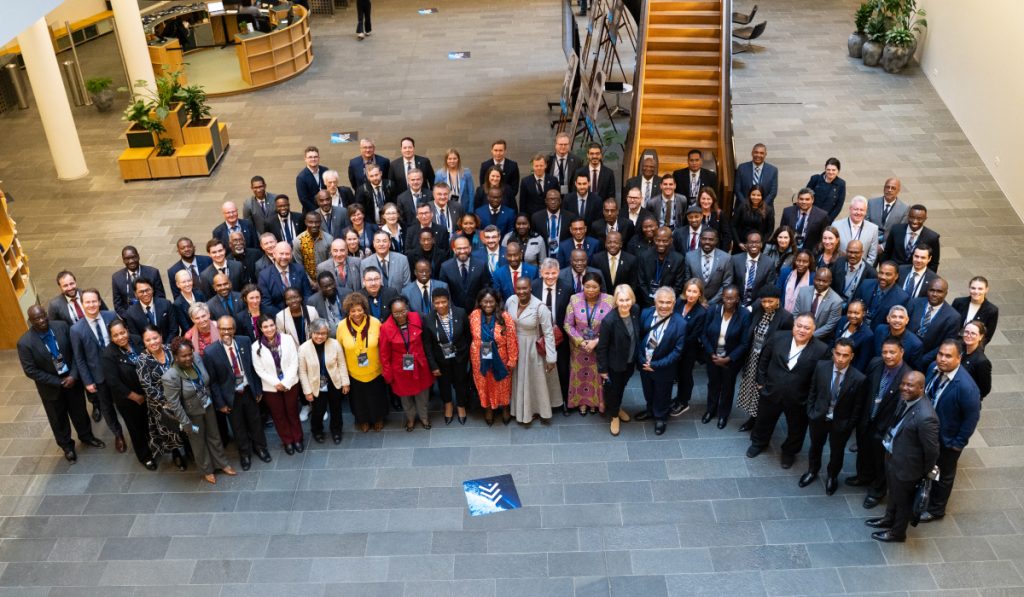As part of the UN Ocean conference 2022 in Lisbon, Portugal, the Blue Justice Initiative, along with CRFM, CARICOM, UNDP, Jamaica, Belize, Saint Vincent and the Grenadines, and Norway, hosted a high-level side event on International and Caribbean efforts to address organized crime in the fishing industry, on the 29th of June 2022. The event hosted many engaging ministers and high-level speakers who touched upon essential aspects of addressing fisheries crime. It highlighted the importance of working together to build capacity to address crime in the fisheries sector.
With more than 150 countries agreeing to scale up science-based and innovative actions to address the ocean emergency, the UN Ocean Conference 2022 highlighted the centrality of a safe, healthy and productive ocean to food security, livelihoods and a safe planet. More than 6,000 participants, including 24 Heads of State and Government and over 2,000 civil society representatives, attended the Conference, advocating for urgent and concrete actions to tackle the ocean crisis. From rising sea levels and marine pollution to ocean acidification and habitat loss, the planet’s ocean is in jeopardy, threatening to derail progress on Sustainable Development Goal 14, the critical roadmap for global action on life below water.
The high-level side event successfully highlighted the importance of fisheries enforcement and instruments to cooperatively tackle organized crime in the global fishing industry and to reach SDG 14 – sustainable use of the oceans for sustainable development.Furthermore, the event emphasized international and regional measures to address fisheries crime to reduce food security threats via innovative digital tools and inter-agency support.
High-level speakers highlighted the importance of working together and establishing new tools and solutions to build capacity against fisheries crime. The Norwegian Minister of Fisheries and Ocean Policy, Bjørnar Selnes Skjæran, provided opening remarks and highlighted the importance of the Copenhagen Declaration. He also talked about the importance of digitalization and the use of satellite-based information, such as an automatic identification system (AIS) in detecting illegal fishing activities. Norway has five micro-satellites in operation, orbiting the earth to monitor AIS signals from vessels at sea. The Norwegian satellites collect about 2,1 billion AIS signals a year –5,7 million signals every day – across the globe.
The minister stated:
I have asked the Norwegian Coastal Administration to clarify if it is possible to share these data with other countries within the Blue Justice framework, and if so, facilitate for it.
Bjørnar Selnes Skjæran, Norwegian Minister of Fisheries and Ocean Policy
Moreover, ministers and high-level officials from the Caribbean provided input on fisheries crime developments.
Speakers included Chief Executive Officer, National Fisheries Authority, Government of Jamaica: Dr Gavin Bellamy. He represented CRFM and opened the panel of ministerial remarks during the event. The panel included the Hon. Pearnel Charles Jr, Minister of Agriculture and Fisheries, The Government of Jamaica. The minister provided remarks alongside The Hon. Andre Perez, Minister of the Blue Economy & Civil Aviation, Government of Belize, and the Hon. Saboto Caesar, Minister of Agriculture, Forestry, Fisheries, Rural Transformation, Industry & Labour, Government of Saint Vincent and the Grenadines.

Fisheries crime in the Caribbean poses a severe threat to food security, the marine environment, and the rule of law. Andre Perez, Minister of the Blue Economy and Civil Aviation in Belize, emphasized the importance of new and innovative tools for stronger maritime domain awareness to build capacity in addressing organized crime in fisheries.
As part of the event, UNDP Blue Resilience launched its knowledge-based, country-driven ‘Blue Action Dialogues’ to support inter-agency cooperation to tackle fisheries crime effectively. Its collaborative approach aims to strengthen inter-agency cooperation to combat fisheries crime.

Crime in the marine fisheries sector has very real negative impacts, particularly on small island developing states. It threatens food security, the livelihoods and well-being of coastal communities, and the rule of law. It undermines the oceans’ health and the sustainability of its marine resources. It threatens the potential of countries to realize a sustainable blue economy.
Dr Emma Witbooi, Project Manager of Blue Resilience UNDP NRO
In collaboration with the Norwegian-led Blue Justice Initiative, UNDP aims to build the capacity for governments to address fisheries crime more effectively. The Ministerial Declaration on Transnational Organized Crime in the Global Fishing Industry (Copenhagen Declaration) is a commitment by global leaders to address the problem and emphases inter-agency cooperation as a vital tool to this end.
Representing the CRFM, Dr Gavin Bellamy provided valuable insight into the issues, challenges and recent actions taken at regional and national levels to address fisheries crime. Furthermore, Dr Bellamy provided background on the formation and structure of the CRFM. In concluding, he underscored the vital role of the fisheries sector in achieving a sustainable and secure future for Caribbean Small Island Developing States: “The key point is that our ocean resources are fundamentally important and critical for sustainable economic and social development, for our countries and the welfare of our people, for now, and more so for the future.”
You can view the event on our YouTube channel.



